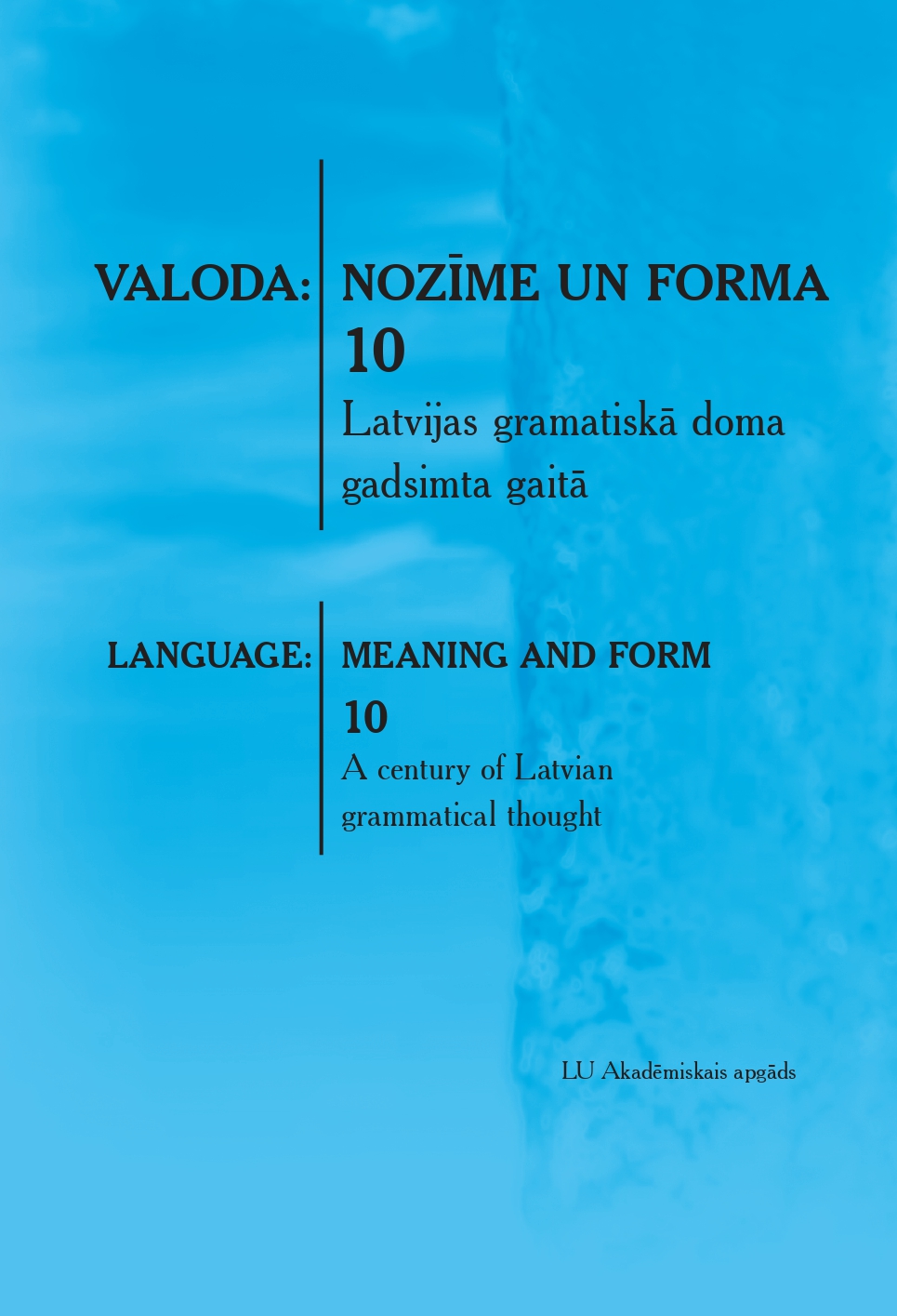Klasisko valodu gramatika Rīgas izglītības vēsturē
Grammar of classical languages in educational history of Riga
Author(s): Gita Bērziņa, Brigita CīruleSubject(s): Language studies, Morphology, History of Education, Philology
Published by: Latvijas Universitātes Akadēmiskais apgāds
Keywords: grammar; Latin; Ancient Greek; classical education; educational history of Riga; grammatical structure;
Summary/Abstract: In European culture in general and educational history particularly, the role played by ancient culture heritage and its medium – classical languages cannot be overestimated. The Baltic region with Riga as one of its metropolises is to be regarded as a part of European culture and education and as an heir of its values and ideas cultivated through more than two thousand years. In the 16th century, Riga educational establishments following the tendencies and models of Europe also introduce studia humanitatis in their curricula allotting a stable place for Latin and Greek. Both classical languages together with ancient Greek and Latin texts serve the highest goal of humanitas – to provide the members of the society with all-round substantial education. Thus, the acquisition of Latin and Greek becomes an essential part of classical education in Riga up to the first half of the 20th century. The importance of each of these explicitly inflexional languages exerting dominant similarities in their grammatical structure is equally valuable and both serve the same goal, and beginning with the 16th century they are taught similarly – as academic disciplines. The basis of this similarity lies in the grammatical structure of Latin and Greek, and the acquisition of each language is based upon detailed and consequent cognition of grammar. In Riga educational establishments, grammar expounding, and interpretation of both classical languages is stable without fundamental changes through many centuries up to even the 21st century. Probably, it can be explained by the fact that such an approach is appropriate to teaching classical languages to those whose native language also belongs to the group of inflectional languages. In addition, the goals for the acquisition of Latin and Greek set forward in each respective period in the educational history of Riga should always be kept in mind. Initially profound acquisition of the grammatical basis of classical languages permits to comprehend their structure and to conceive through comparison also other similar modern Indo-European languages, which allows to discern deeper and more in detail universal typological similarities in different languages, as well as to perceive differences more clearly. Such an approach to Latin and Greek widens significantly linguistic competence, develops logical and critical thinking and fosters general intellectual development.
Journal: Valoda: nozīme un forma
- Issue Year: 2019
- Issue No: 10
- Page Range: 11-24
- Page Count: 14
- Language: Latvian

